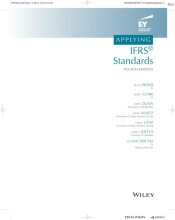Consolidation: non-controlling interest
3 important questions on Consolidation: non-controlling interest
Non-controlling interest (NCI)
Full goodwill method
The acquired goodwill consists of both the goodwill of the subsidiary and the premium paid by the parent to acquire control over the subsidiary. The control premium is recognized as part of goodwill ons consolidation but is nog attributable on the NCI.
What are the three main differences in outcome that occurs where the partial goodwill method is used instead of the full goodwill method?
2. This affects the impairment loss relating to goodwill
3. There is also an effect where an acquirer subsequently obtains further share in the subsidiary at a later date.
The question on the page originate from the summary of the following study material:
- A unique study and practice tool
- Never study anything twice again
- Get the grades you hope for
- 100% sure, 100% understanding






























